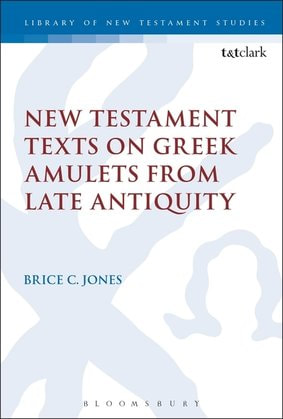|
In a 2012 issue of New Testament Studies, there is an article by Richard Last titled "Communities That Write: Christ-Groups, Associations, and Gospel Communities." The article challenges Richard Bauckham's "Gospel for all Christians" theory and proposes that the old view that states that Gospel authors wrote from within and for their own communities should be maintained. Last's biggest contribution is his methodology. He claims that genre criticism does not help us much, since genre (e.g., biography) does not tell us much at all about the Gospels' intended audiences. Instead of a genre approach, Last shows how ancient associations provide the closest analogy to early Gospel communities. Last claims that "associations wrote out of collective self-interest...since approval from the general membership was needed before association writings were deemed authoritative by the group, the content of association writings reflects the communal histories (narratives) and values (bylaws and decrees) of the group as a whole, not just the viewpoints of selected representatives." (182). Thus, according to Last, while we should uphold the standard view that Gospels were written from within andfor specific Gospel communities, we should no longer think of their authors as single representatives of those communities. Instead, the composition of a Gospel was a communal process that reflected the collective cultic ideologies of the "Christ-group." Last concludes:
"There is now reason to suspect that communities, not just individual ‘spokespersons’, played an active role in the production of gospels, but Esler’s observation is right. The association evidence supports the intuitions of many gospel scholars by demonstrating that communities in antiquity wrote collaboratively as a group in a manner that fostered self-reflexivity and self-interest, and that made general readership an uninteresting and impractical goal. Early Christ-groups operated by the same conventions. This was the normal practice of composing a document from within an association, and it created an obstacle to their acceptance as authoritative texts by general audiences." (198). This is a significant contribution to Gospels criticism that must be taken seriously. I am not persuaded by Bauckham's theory of "Gospels for all Christians" nor have I accepted his radical view that the traditions about Jesus were safeguarded by those who preserved and transmitted them. At least with regard to the former, Last has proposed a new way of thinking about the composition of Gospels that makes Bauckham's thesis untenable. At first blush, Last's attempt to forge a connection between "Christ groups" and ancient associations is successful, at least insofar as the analogy seems much closer with respect to the writing and function of group documents than is, say, genre. I am very interested in knowing how Last's theory has been received among NT scholars since its 2012 publication. The main issue, I think, will be to what extent we should read the writing practices of ancient associations into early Christian communities. That is, is there a way to prove that early "Christ groups" saw themselves as an "association" and that their group practices (such as writing) are perfectly consistent? Again, I find the analogy persuasive and helpful. In any case, there is no question: this article is a weighty one that will likely challenge quite a few followers of Bauckham, if not Bauckham himself. Last has made his NTS article available on his academia.edu webpage here.
3 Comments
Richard Last
2/23/2014 04:15:08 am
Thanks for this, Brice. I enjoy your blog … and not just because you've made posts about this article. Working through late-antique Christian papyri, I regularly check here for helpful insights. I’m presenting new research on the social setting of gospel composition at the 2014 CSBS which will address recent and helpful critiques of the ‘community’ concept in scholarship on early Christianity, as well as present new data concerning the membership of authors and ‘freelance experts’ (a term used recently in reference to astrologers, prophets, philosophers, diviners, etc.) in private cultic groups. I’m not entirely sure how the NTS article was received. I received very kind personal correspondence after it was published, and heard recently that it is mentioned in a new encyclopedia. I’m not sure which one so I don’t know if it is a positive, neutral, or negative reference.
Reply
Brice C. Jones
link
2/23/2014 06:30:08 am
Thanks, Richard! It seems we have at least two things in common: 1) Gospels and 2) papyrology! I don't know if I will make the CSBS but your paper sounds fascinating. Let's stay in touch.
Reply
Mike
7/17/2015 09:21:49 am
How much of a comparison can be made between Lasts associations
Reply
Your comment will be posted after it is approved.
Leave a Reply. |

Available at Amazon!
Archives
June 2020
Categories
All
|